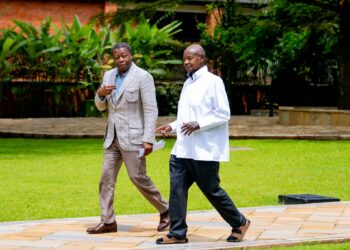This week marks two months since the dust raising report on the closure of seven commercial banks by Bank of Uganda (BoU), was tabled before Parliament.
The report followed three months of a grueling inquiry of what went in the closure of banks by the Committee on Commissions Statutory Authorities and State Enterprises (Cosase).
The Auditor General had in the August 2018 findings told Parliament of the irregularities which had been buried alongside closed banks, but were resurrected by the liquidation of Crane Bank.
Questions asked following Crane Bank closure later exposed the mismanagement at the Central Bank and Parliament made key reforms recommendations which two months down the road have not been implemented.
It is important to note that Parliament had found BoU officials guilty of turning the Central Bank into a clearing house for deals.
In the space of 10 years, BoU officials had with reckless abandoned closed Teefe Bank (1993), International Credit Bank Ltd (1998), Greenland Bank (1999), the Co-operative Bank (1999), National Bank of Commerce (2012), Global Trust Bank (2014) and Crane Bank Ltd (CBL). And, in none of the above, did the BoU officials follow the due process.
The Committee noted a number of inconsistencies key among them being closure and sell of the defunct Banks without any inventory or documentation and grossly undermining the legal procedures of bank closure by the Central Bank.
It was only sober, like the Cosase report earlier recommended, that shareholders of the banks closed outside the norm, be compensated for the losses.
Prime Minister Ruhakana Rugunda told Parliament that Government will act on recommendations made by the House Committee in a statement made during a debate on the report, on 27 February 2019.
“When the local banks like the Cooperative Bank closed, the local people got a raw deal because they found it easier to deal with it as it was locally founded,” Rugunda said, adding that he was happy that the probe brought to light several inconsistencies in the closure of the banks.
He added, pondering on the powers Mrs Justine Bagyenda, the former director of commercial supervision, “We agree for example that there should be separation of Central Bank supervision and liquidation into two departments to curb the inconsistencies that have arisen”.
Rugunda said the government officials should be straight-forward and follow all the laws and rules while exercising their duties.
Cosase found out that BoU officials were not transparent and didn’t follow good governance principles in their undertakings, which was made worse by their failure to conduct their dealings without records.
Bank of Uganda didn’t stop at closing banks without following the law. MPs were shocked to find out that they even had private lawyers hired at exorbitant prices, to advise them on the closure. The lawyers included MMAKS and Kirkland Advocates who oversaw the take over and closure of the banks.
Most of all, Mr Rugunda said “all those found culpable of wrong-doing will be penalised”.
However, two months since the Parliament debate, no action has been taken by government, whether in terms of BoU reforms, punishing errant officials, or compensating shareholders who lost their share capital. May be it is true like critics say, Parliament probes are for cameras. If not, something must be done about the BoU report.
Do you have a story in your community or an opinion to share with us: Email us at editorial@watchdoguganda.com









